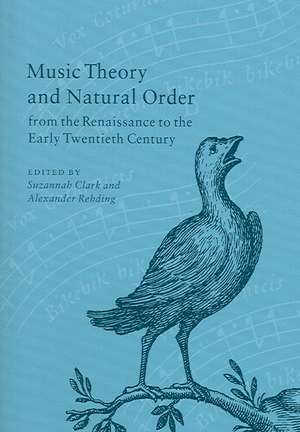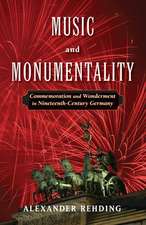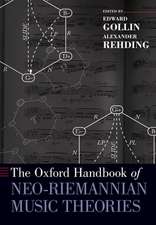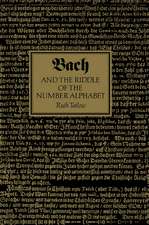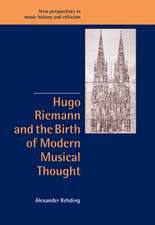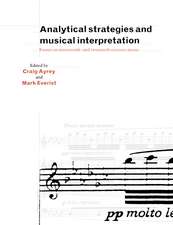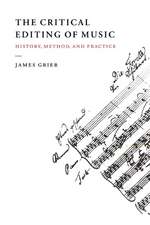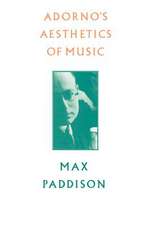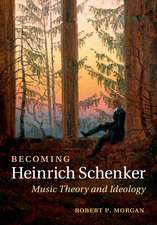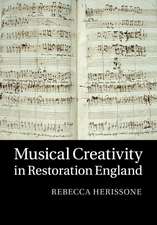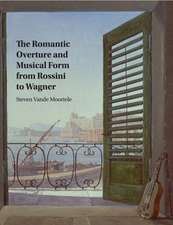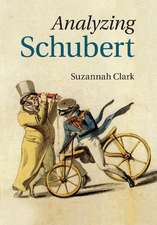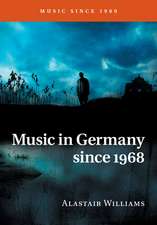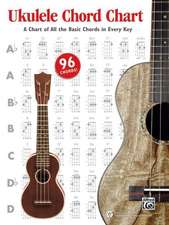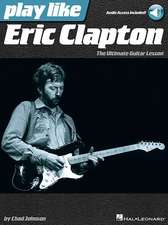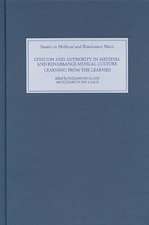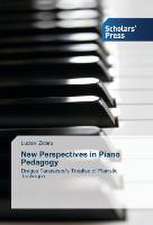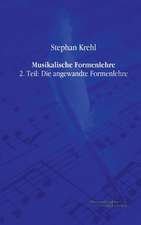Music Theory and Natural Order from the Renaissance to the Early Twentieth Century
Editat de Suzannah Clark, Alexander Rehdingen Limba Engleză Paperback – 18 ian 2006
Preț: 336.30 lei
Nou
Puncte Express: 504
Preț estimativ în valută:
64.35€ • 67.19$ • 53.14£
64.35€ • 67.19$ • 53.14£
Carte tipărită la comandă
Livrare economică 15-29 aprilie
Preluare comenzi: 021 569.72.76
Specificații
ISBN-13: 9780521023924
ISBN-10: 0521023920
Pagini: 256
Ilustrații: 10 b/w illus. 28 music examples
Dimensiuni: 170 x 245 x 15 mm
Greutate: 0.41 kg
Editura: Cambridge University Press
Colecția Cambridge University Press
Locul publicării:Cambridge, United Kingdom
ISBN-10: 0521023920
Pagini: 256
Ilustrații: 10 b/w illus. 28 music examples
Dimensiuni: 170 x 245 x 15 mm
Greutate: 0.41 kg
Editura: Cambridge University Press
Colecția Cambridge University Press
Locul publicării:Cambridge, United Kingdom
Cuprins
Part I. The Disenchantment and Re-enchantment of Music: 1. Vincenzo Galilei, modernity and the division of nature Daniel Chua; 2. 'Tis nature's voice': music, natural philosophy and the hidden world in seventeenth-century England Linda Phyllis Austern; 3. The 'gift of nature': musical 'instinct' and musical cognition in Rameau David Cohen; 4. Nietzsche, Riemann, Wagner: when music lies Leslie David Blasius; Part II. Natural Forms - Forming Nature: 5. The second nature of sonata form Scott Burnham; 6. August Halm's two cultures as nature Alexander Rehding; 7. Seduced by notation: Oettingen's topography of the major-minor system Suzannah Clark; Part III. Constructions of Identity: 8. The gendered eye: music analysis and the scientific outlook in German early Romantic music theory Ian Biddle; 9. On the primitives in music theory: the savage and subconscious as sources of analytical authority Peter A. Hoyt.
Recenzii
"...the variety and high-quality of the nine articles in this volume are impressive indeed...The excellent essays which form this volume, although focused specifically on music and music theory, are case studies of the universal tendency to substantiate ideology by means of appeals to "nature" and "natural order" and, as such, are certainly of general interest." Renaissance Quarterly
Descriere
Explores the ways music theory has represented and employed natural order since the scientific revolution.
